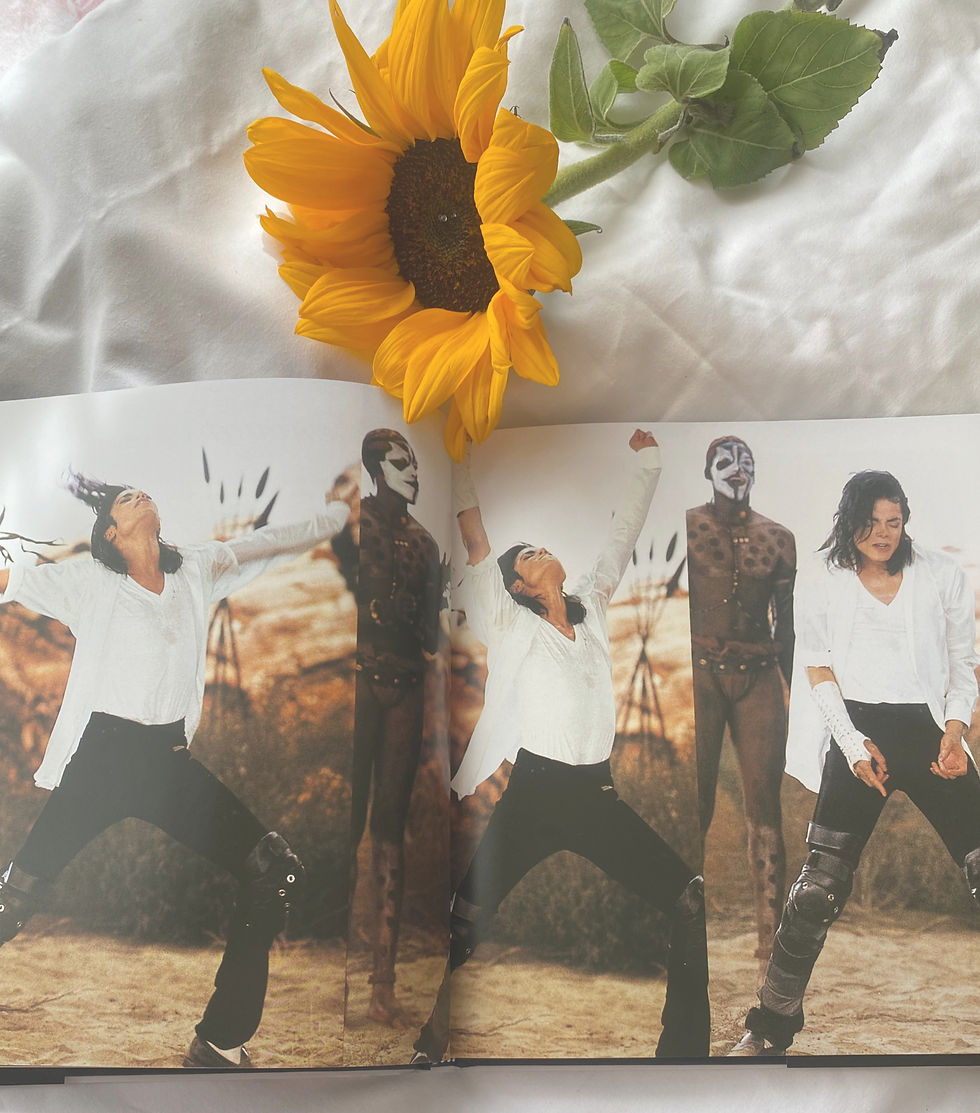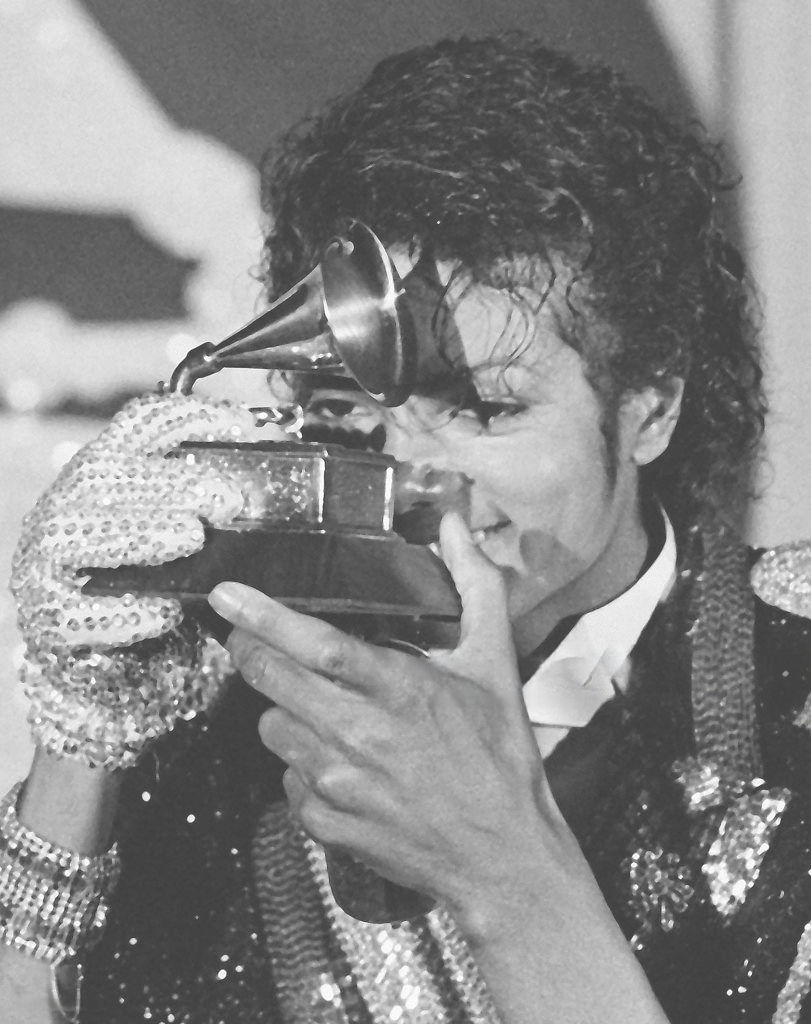Black or White
- Soldier Of Love
- Jun 6, 2025
- 7 min read
Updated: Jul 3, 2025
Pride, Pain, and Perseverance: What Michael Jackson’s Story Teaches Us About Identity
“I’m a Black American, and I am proud. Proud of my race. Proud of who I am.” Michael Jackson
When Michael Jackson said he was proud to be a Black American, he wasn’t just making a statement, he was pushing back against a world trying to erase that pride. This pride runs deep, rooted in generations of strength and resilience. It transcends race and lives within all of us who understand its meaning. Yet life often tests this pride, forcing us to confront judgment, ignorance, and cruelty. Michael, sadly, lived that struggle every single day.

In honour of Black Music Month, I want to celebrate the legacy of Black artists who opened doors and changed the world through their music. For me, there’s no better place to start than with Michael Jackson. He wasn’t just the King of Pop; he was a powerful symbol of Black excellence, resilience, and pride. Even when the world tried to tear him down, he stood tall, and his music spoke louder than any criticism.
Michael was diagnosed with vitiligo, a condition that causes skin to lose pigment over time. It wasn’t a choice, it was inherited, something beyond his control or cure. But the media twisted this painful truth into a cruel lie: that Michael was ashamed of being Black and wanted to be white. That lie cut deep, not only because it was false but because it fed into a darker story about race, identity, and the struggle to be accepted for who you truly are.
I can only imagine the loneliness Michael felt, carrying a burden he never asked for, his body changing beyond his control, all while the world watched and judged. That kind of pain is invisible to most, but it weighs heavy on the soul. For Michael, vitiligo was more than a medical condition; it became a symbol of the misunderstanding and prejudice he faced every day. Yet despite the hurt and whispers, he refused to let it steal his spirit or silence his pride.
Sometimes I feel Michael’s vitiligo wasn’t a coincidence. Deep in my heart, I wonder if God gave him this condition not to punish, but to make him a symbol of tolerance and acceptance. As one of the most influential people of his time, Michael carried that burden with grace few understood. Though he shone with his own light, he was harshly judged by a world that couldn’t see beyond his appearance. It pains me to think the world often failed to live up to his message, and instead of embracing him, so many unfairly judged him.
When Michael said, “I am a Black American. I am proud of my race. I am proud of who I am,” he wasn’t just speaking for himself. He spoke for millions facing discrimination, stigma, and impossible standards. He revealed a heartbreaking contradiction: many tan their skin to look darker without question, but when someone’s skin becomes lighter because of a medical condition, they face judgment instead.
Michael’s story reminds us that who we are goes far beyond the colour of our skin. It’s about our culture, history, the stories we carry, and the strength in our hearts.
Black or White: A Cultural Anthem Against Racism
One of Michael’s strongest responses to racial tension was his 1991 hit Black or White. Released during a time of racial unrest, just months after the brutal beating of Rodney King by white police officers in Los Angeles, this song was more than a pop hit. It was a bold and urgent cultural statement. With Black or White, Michael directly faced racism for the first time, using his voice to challenge division and call for unity.

During a time of racial tension, Black or White spoke out against racism directly. The message was clear: race should never separate us. We are all human and deserve respect and equality. Through the song, Michael challenged the false ideas of racial superiority that have caused so much pain.
The short film for Black or White pushed the limits of visual storytelling and racial commentary. It begins with Michael dressed in black and white, traveling the world and adapting his dance to each culture, dancing with Africans, Native Americans, Thais, Indians, and Russians. Acting as a global storyteller, he celebrates diversity and tries to open the eyes of a skeptical white American father (played by George Wendt) to the beauty of all cultures. Tribal dancers painted in black and white symbolize this blending of traditions. In a bold, fearless moment, Michael confronts a burning cross, a symbol of Ku Klux Klan terror, and defiantly shouts, “I ain’t scared of no sheets!” A powerful stand against racial hatred and fear. This is followed by faces of different races morphing seamlessly into one another, revealing the shared humanity beneath our differences.

At the end, a black panther leaves the stage and goes into a back alley. Michael smashes a car with a crowbar, grunts and screams, throws a trash can through a window, then falls to his knees and rips off his shirt. The panther dance expresses Black pride, anger, and defiance against oppression.
The video didn’t just fight racism; it challenged patriarchy and toxic masculinity too, questioning white authority and harmful music culture norms. Though directed by John Landis, Michael used the film to reclaim Black storytelling power and challenge white control in media.
Black or White wasn’t just a song, it was a call for unity and action during one of America’s most tense moments.

Breaking Barriers and Celebrating Black Culture
Michael Jackson’s impact on the Black community and the world is immeasurable. He changed how we see pop culture and Black culture forever.
At the peak of his career, Michael released Thriller, his most famous album. In 1983, he broke a major racial barrier by becoming the first Black artist to appear in rotation on MTV with Billie Jean. This changed the music world and opened doors for many Black artists to be seen and heard. That same year, Billie Jean hit number one, and Michael amazed the world by doing the moonwalk for the first time, a move that made him a true music legend.

Thriller, the best-selling album ever, brought Black music and culture worldwide. It shared the power of soul, R&B, and funk with everyone. With Remember the Time and its video featuring an all-Black cast as ancient Egyptian royalty, Michael stood up to Hollywood’s usual white-centered stories, honoring Black history with pride. He shone brightly, and Black communities across America celebrated him with love. Michael was a young Black man with the world at his feet.
His fight for Black rights went far beyond music. In 1987, he stood strong with the NAACP in their campaign against racism, fighting discrimination against Black artists, a cause deeply personal to him. His commitment to equality never wavered, and in 2002, he joined the National Action Network to keep that fight alive.
We don’t just celebrate Michael as the first Black global pop icon; we also honor his powerful work with the NAACP and the UNCF, where he pushed for voting rights and better education for Black Americans.
Michael didn’t just entertain, he used his music to confront racism and injustice. Songs like They Don’t Care About Us, HIStory, and Jam spoke openly about police brutality, inequality, and prejudice, shedding light on issues many tried to ignore.

The fight for Black rights has been led by voices like Harriet Tubman, Nelson Mandela, Martin Luther King Jr., and Richard Wright, all standing against injustice and demanding equality. Though Michael came from a different time and platform, he carried that fight forward. With his global reach, he raised awareness about racism and united people. His impact went beyond music, he gave over $300 million to humanitarian causes, supported the NAACP and the United Negro College Fund, co-wrote We Are the World to help end famine in Africa, and founded the Heal the World Foundation to care for children and fight inequality everywhere.

A Role Model for Generations
Michael Jackson was more than a superstar, he was a symbol of hope and inspiration, especially for Black children growing up in a world that often made them feel like they didn’t belong. Starting as a child star in the Jackson 5, he rose to fame during a time of racial segregation and tension. Michael and his family broke barriers and opened doors long closed to people of color.
As the youngest of the group, he was full of light and unmatched talent, a spark that gave so many Black kids someone to look up to. Growing up, Michael became a true force in entertainment, mastering singing, dancing, acting, and more. He was a beautiful, joyful Black child who grew into a record-breaking Black man the world had never seen before.
Even under harsh public scrutiny over his appearance, Michael never lost sight of who he was. He carried his pride, roots, and identity with quiet strength, inspiring millions simply by being himself.

Black children found hope in Michael’s memorable songs and iconic dance moves. He was a true hero for the Black community, embodying Black excellence, grace, and power at a time when few Black entertainers gained global recognition. As the first Black global pop icon, Michael paved the way for future generations of Black artists, athletes, and leaders to be seen and succeed.
Legacy of Courage and Truth
Michael Jackson’s life was a lesson in bravery. He dared to be vulnerable. He dared to be different. Through his music and his message, he broke down walls, shattered stereotypes, and reminded us all that identity is complex, beautiful, and worthy of pride.
His fight against misinformation about vitiligo, his fearless embrace of Blackness, and his visionary artistry continue to inspire us every day. Michael’s work encourages us to look beyond surface appearances and to judge one another by our shared humanity.
In the end, let's hold close Michael's words in his song History:
"All nations sings, let's harmonise all around the world."

In a world still struggling with racial division and injustice, Michael Jackson’s light still guides us. Thank you, Michael, for your courage, your art, and your truth. We will carry your light forward, always.
With all my heart,
Daniela. 🌻



What can I say? Honestly, you’ve already said it all with your beautiful words, just like Michael did through his music.🥹 Sadly, we still live in a world where discrimination and division are very real, sometimes out in the open, sometimes hidden. And you're so right: Michael was so much more than an artist. He stood for peace, respect, and unity among all people🫂🤍Thank you sweetheart for this amazing article, it really makes you think about how strong he stayed, despite all the judgment, and how he never stopped fighting for a better world🌎✨
El video y la canción de Black Or Whrite siempre me ha parecido una de las mejores creaciones de Mchael, ya que a través de la música, nos ayuda a a sensibilizar y a entender de que todos y todas podemos convivir con humildad y respeto. Que amena lectura. 👏🏼👑✨️